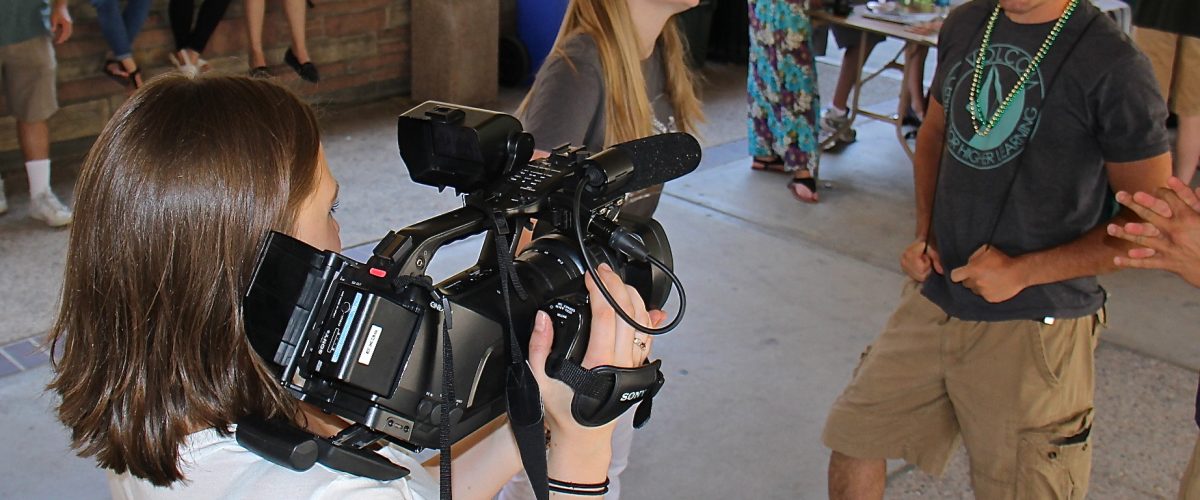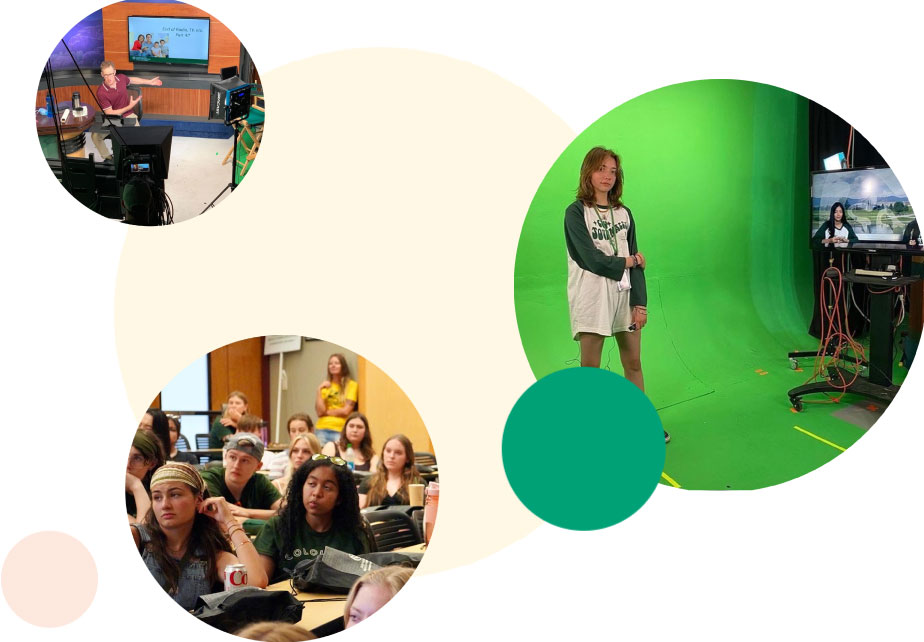Major
Journalism and Media Communication is a diverse community of scholars, journalists, media creators, and professional communicators. We think critically and strategically, striving for truth and impact through substance and style.
How Will You Tell Your Story?
We explore the uses and effects of media through teaching, scholarship, creative activity, and engagement. Our community represents a broad diversity of voices and perspectives to inspire fairness, accuracy, and responsibility through academic and professional collaboration.
Choose a Focus Area
While students are not required to choose an area of focus, it is strongly encouraged to build a foundation in at least one of the following JMC focus areas.
Journalism & Storytelling
If you enjoy developing and sharing relevant stories, consider a Journalism and Storytelling focus. Journalists cover important events, trends, and circumstances, gather information and media, then craft factual stories for readers, listeners, and viewers. Technology advances continue to disrupt traditional reporting practices and funding options. But technology also expands the potential reach and influence of journalists. This makes news gathering and dissemination more immediate, global, and responsive.
Hear from JMC faculty about the Journalism and Storytelling focus area
Courses for Journalism and Storytelling include:
- JTC 305 Media and Global Cultural Identity
- JTC 310 Copy Editing
- JTC 320A/B Reporting/Sports Reporting
- JTC 328 Feature Writing
- JTC 420 Advanced Reporting
- JTC 422 Entrepreneurial Journalism
Your Academic Success
You will meet your Academic Success Coordinator at Orientation, and then each semester prior to registration. They will help you understand your degree program, discuss your goals with you, help you to define your focus area, as well as serve as your navigator for resources across campus.
Journalism and Media Communication is a competitive major. Direct entry into the program as a first-year student requires a cumulative high school GPA of 3.2 or higher. Transfer students or students looking to switch majors after enrolling at CSU must have a cumulative GPA of 2.5 or higher from all prior university coursework.


Minors
The Journalism and Media Communication Department offers four minors, including two that are interdisciplinary.
• Media Studies
• Science Communication
• Information Science and Technology
• Music, Stage and Sports Production
Opportunities with JMC
Explore ways to enhance your undergraduate education.
Prospective Students
Not yet attending CSU and considering a major in journalism and media communication? Learn more about the CSU experience and engage with the department by contacting the Recruitment and Enrollment Coordinator in the College of Liberal Arts.
